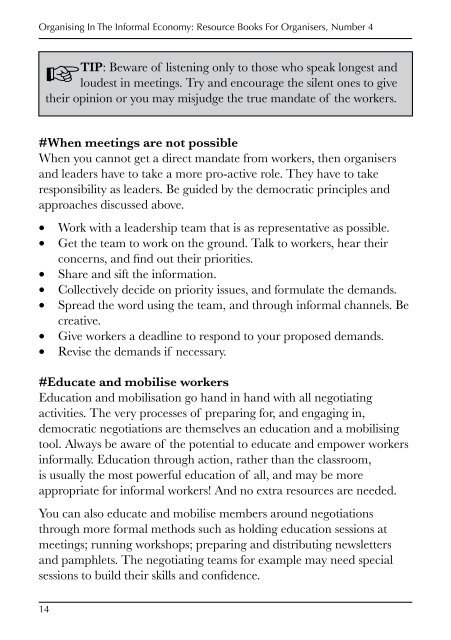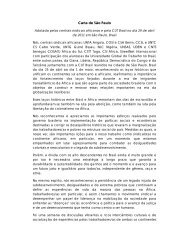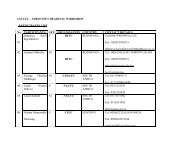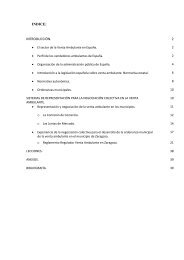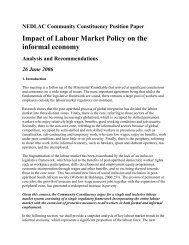Eng: PDF - Ditsela
Eng: PDF - Ditsela
Eng: PDF - Ditsela
- No tags were found...
You also want an ePaper? Increase the reach of your titles
YUMPU automatically turns print PDFs into web optimized ePapers that Google loves.
Organising In The Informal Economy: Resource Books For Organisers, Number 4<br />
TIP: Beware of listening only to those who speak longest and<br />
+ loudest in meetings. Try and encourage the silent ones to give<br />
their opinion or you may misjudge the true mandate of the workers.<br />
#When meetings are not possible<br />
When you cannot get a direct mandate from workers, then organisers<br />
and leaders have to take a more pro-active role. They have to take<br />
responsibility as leaders. Be guided by the democratic principles and<br />
approaches discussed above.<br />
••<br />
••<br />
••<br />
••<br />
••<br />
••<br />
••<br />
Work with a leadership team that is as representative as possible.<br />
Get the team to work on the ground. Talk to workers, hear their<br />
concerns, and find out their priorities.<br />
Share and sift the information.<br />
Collectively decide on priority issues, and formulate the demands.<br />
Spread the word using the team, and through informal channels. Be<br />
creative.<br />
Give workers a deadline to respond to your proposed demands.<br />
Revise the demands if necessary.<br />
#Educate and mobilise workers<br />
Education and mobilisation go hand in hand with all negotiating<br />
activities. The very processes of preparing for, and engaging in,<br />
democratic negotiations are themselves an education and a mobilising<br />
tool. Always be aware of the potential to educate and empower workers<br />
informally. Education through action, rather than the classroom,<br />
is usually the most powerful education of all, and may be more<br />
appropriate for informal workers! And no extra resources are needed.<br />
You can also educate and mobilise members around negotiations<br />
through more formal methods such as holding education sessions at<br />
meetings; running workshops; preparing and distributing newsletters<br />
and pamphlets. The negotiating teams for example may need special<br />
sessions to build their skills and confidence.<br />
14


